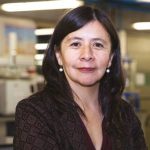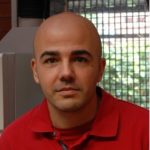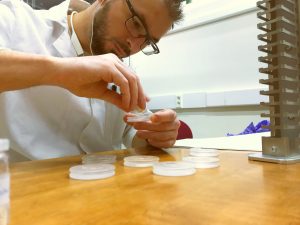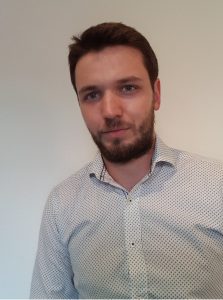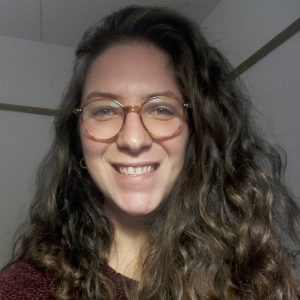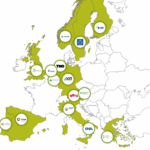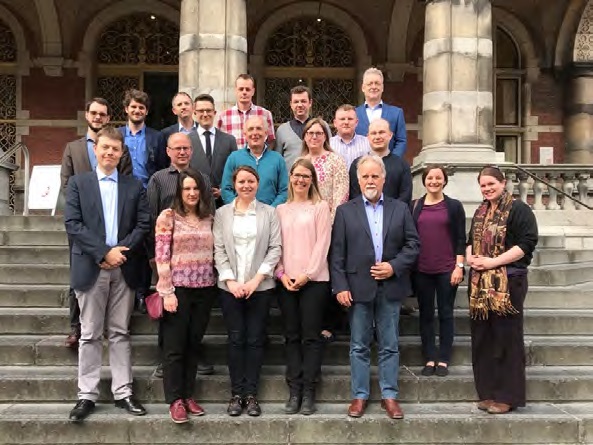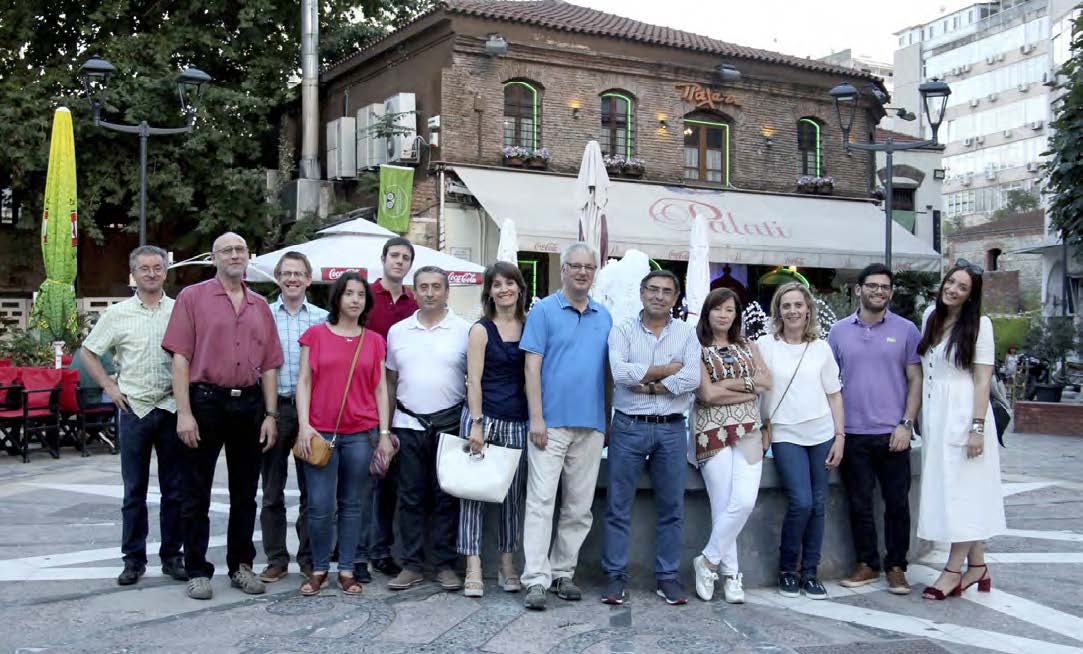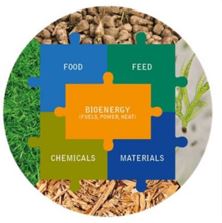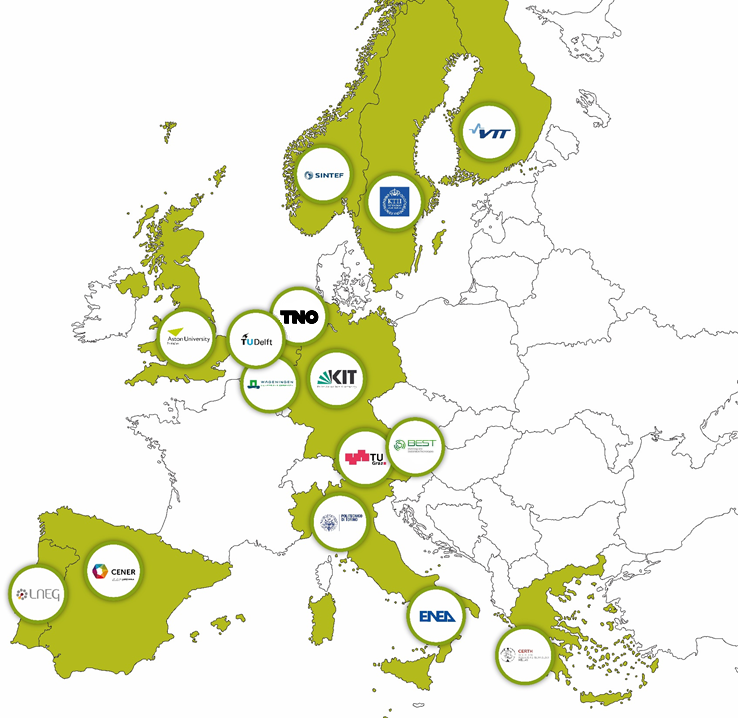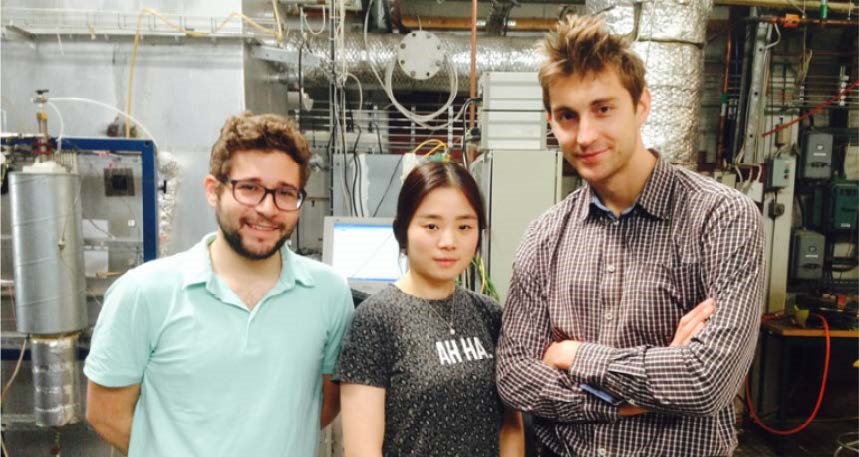BRISK2 News
Joint Research: CENER
Inés del Campo, Senior Researcher at the Biomass Department at the CENER_ National Renewable Energy Centre of Spain has prepared the preliminary results of the activities carried out within BRISK2 Task 4.3 benchmarking.
In this task, data obtained from four round robin campaigns carried out between 2018 and 2019 have been collated and analysed. These will deliver benchmarking of the protocols and methodologies and include results obtained from the different BRISK2 test rigs both in thermochemical and biochemical conversion of biomass.
The full report will be published soon, so watch this space!

Case Study: Antonio Soria-Verdugo
Mauro Prestipino (pictured left) is a Post-doc Researcher within the Department of Engineering at the University of Messina, Italy.
He was looking forward to working with the TNO research centre in the Netherlands to test dried citrus peel in the Milena reactor, an indirect gasifier with a design providing several advantages compared to direct gasification.
When COVID-19 hit he had to find another way to carry out his research, so was able to do this virtually and he was able to finalise the experiment.
Case Study: Rocio Sierra Ramirez
Rocio Sierra Ramirez (pictured right) from the Departamento de Ingeniería Química –Universidad de los Andes in Bogota, Colombia discusses the work her team did on the phytochemical characterization of extracts from residues of orange and mango.
Due to the travel restrictions resulting from the COVID-19 pandemic, Jessica Maria Gomez Hernandez virtually visited Wageningen University in the Netherlands with Nicole Engelen and Brigit Beelen completing laboratory work on her behalf. Read more about their research.
Case Study: Antonio Soria-Verdugo
Antonio Soria-Verdugo is an Associate Professor in the department of Thermal Engineering and Fluid Mechanics of the Universidad Carlos III de Madrid (UC3M).
His research focuses on fluidization and thermochemical conversion of biomass, thus the BRISK2 project was an excellent opportunity for him to combine these two fields in an experimental project concerning gasification of biomass in a bubbling fluidized bed reactor.
Meet and Expert: Mahrokh Samavati
Mahrokh Samavati is an Iranian born researcher who currently co-ordinates the prestigious BRISK2 project facilitating transnational access. Her background is in the field of Mechanical Engineering with keen interest in renewable and sustainable energy systems.
European Project Coordinator Alanna Boden, based in EBRI, interviewed her over a virtual coffee to get her thoughts on the past 12 months.
Read her full reflections and thoughts on the BRISK2 project.
Work Package Update: Aston University
Professor Tony Bridgwater (pictured right) shares his thoughts on how Aston University in Birmingham, UK and the EBRI (Energy and Bioproducts Research Institute) has responded to the Covid-19 pandemic over the past year.
In his report, he explains how the university has reacted ‘strongly and positively’ in rising to the challenge of maintaining teaching and research as safely as possible.
Read his full reflection, along with the his thoughts on the BRISK2 project.
Bioenergy News
- BRISK2 is now reviewing applications for Transnational Access as they come in. Should you wish to have a virtual visit you must gain approval from the hosts that they are able to complete your testing and return your results. If a virtual visit is not possible, then as soon as it is safe for you to travel you can commence your transnational visit to your selected destination. You can find out more how to apply, by clicking this link.
- PYRO2021 Conference is now in 2022, moving to the 16 – 20 May 2022. Delegates from academia, research institutes and industry are going to present their latest results and define the needs for future developments. We are still very much hoping to attend as we are Silver Sponsors of the event. To compensate our loyal followers, there will be a virtual event between 12 – 13 April, 2021. For more details, visit this link.

- Thermobio GDR: The Thermobio Research Group brings together French researchers working in the field of thermochemical conversion of biomass and wastes. On Thursday, 18th March there will be a virtual open day called Thermobio GDR and we will be a part of it. So please make sure you sign up which you can do so, via this link.
- ABC-Salt: The autumn 2020 newsletter from our colleagues atABC-Salt talks about their latest webinar and also the upcoming spring school on 17 – 18 March 2021 which will be held virtually. Want to find out more? Visit this link for the newsletter or click here for more spring school details.
A few words from BRISK2 Project Co-ordinator
2020 is now behind us, yet we still face huge challenges in handling the COVID -19 pandemic.
Thankfully several vaccines are being rolled out across the world, and we can thank the dedicated work of our researcher colleagues in medicines and pharmaceuticals for this tremendous accomplishment.
Meanwhile everyday life goes on, and partners in BRISK2 have been able to adapt to the situation. We were encouraged by a good turn-out for the re-opening of the Transnational Access (TA) call and look forward to delivering in conjunction with our visiting researchers. To ensure an even smoother process we have decided to handle TA applications on a rolling basis from now on. This means that a decision can be made within a month or so of submission. We will also be opening up certain high-demand facilities for additional visits. In parallel we continue our work in Joint Research Activities.
I hope you stay safe and sound. Please join in Transnational Access, or feel free to reach out to us if you would like to know how to collaborate.


Joint Research Activites
Towards the end of August 2020, many of you were able to join us for our Mid-term review which we held online. It was incredibly interesting to see how far the project has already come and how we were all preparing to continue the project. We shall keep you updated on the progress and we look forward to our next meeting, which hopefully can be face-to-face in the future.
Case Study: Diego Fuentes-Cano
Diego Fuentes-Cano from the University of Seville in Spain, visited TU Graz in Austria in 2018 and also has a collaborative publication available to read in Fuel Processing Technology. Diego visited Tu Graz’s fluidized bed gasifier and secondary reactor rig and during his visit. He studied the catalytic activity and stability of biomass-derived chars for tar conversion during fluidized bed gasification. Read about his visit here.

Case Study: Isabel Nogues
Isabel Nogues (pictued right) visited Wageningen (WUR) in the Netherlands in 2019 from the Italian National Research Council. We are delighted to announce she has since then had a collaborative paper published in the Plants journal. Isabel is a senior researcher and her focus is on the plant physiological and biochemical responses to sub optimal growth conditions. Read about her trip here.
Case Study: Przemyslaw Maziarka
in 2019 Przemyslaw Maziarka travelled from Ghent University, Belgium, to BEST in Austria. BEST had just the installation Przemyslaw needed, a Single Particle Reactor. His area of research is related to the CFD modelling of the thermochemical conversion (pyrolysis) of a large, single particle of biomass. Apart from the hard data and samples, Przemyslaw gained practical knowledge in how to conduct and measure the single particle conversion process. Read about his transnational access trip here.
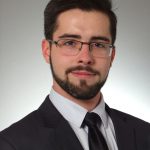
Brisk2 at EUBCE 2020
BRISK2 was set to go to EUBCE in Marseille, France in late April 2020 but of course, all plans changed because of COVID. Both the conference and BRISK2 stand went online and took place in July instead. Drs Daniel Nowakowski and Scott Banks took queries at the BRISK2 stand and Jaap Kiel from BRISK2 partner TNO spoke on different aspects of biomass production.

Work Package Updates

Christos Tsekos
TU Delft
Christos works within the Process and Energy Department of the Mechanical, Maritime and Materials Engineering Faculty (3mE). His area of research is thermochemical biomass conversion using fast pyrolysis and gasification to produce second and third generation biofuels. Read Christos’s thoughts on BRISK2 and lockdown

Stefan Retschitzegger
BEST
Researcher Stefan Retschitzegger is from Bioenergy and Sustainable Technologies (BEST) in Austria. BEST’s research focuses on biomass combustion, biomass gasification and downstream syntheses, and biogas and bioconversion. Part of Stefan’s role includes working with industry. Read his reflections and thoughts on the BRISK2 project

Axel Funke
KIT
Principal Investigator for Pyrolysis, Axel Funke, is from the Karlsruhe Institute of Technology (KIT) in Germany. Axel shared how COVID impacted his work and you can read his thoughts here. At KIT, the focus is on the thermochemical processes of pyrolysis, solvolysis, combustion and gasification. KIT built and operates the 2-5 MW Bioliq® pilot plant for synthetic fuel production from biomass residues.
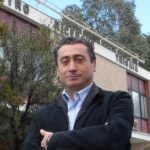
Francesco Zimbardi
ENEA
Francesco Zimbardi is Senior Researcher at BRISK2 Partner ENEA in Rome, Italy. ENEA is a public body and the National Agency for New Technologies, Energy and Sustainable Economic Development. Like so many, Francesco would like to see a noticeable move away from fossils and in this article, he talks about attention from biofuels to biomaterials.
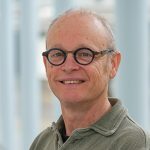
Wim Mulder
Wageningen University
Wim Mulder is Unit Head at BRISK2 Partner Wageningen University (WUR). WUR is looking at the potential of protein-based biomass in the energy sector and is also developing different biorefinery strategies to get the most out of complex biomass. Wim says BRISK2 has broadened WUR’s professional network. Read Wim’s thoughts here.
Bioenergy News: ABC-Salt
Our colleagues at ABC Salt have a couple of events and activities that maybe of interest to many of our members at BRISK2.
An expert webinar workshop will be held on Hydrotreatment of Bio-liquids on Thursday, 15 October 2020 between 13:00 and 16:30 BST.
The workshop invites all industrial developers, researchers, academics and others working within the bio-energy fields to the workshop. There will be a presentation on European innovation policy, and topics also covered will include pyrolysis, hydrothermal liquefaction, sugar fractionations and bio-liquids upgrading. This will then be followed by a discussion panel and the opportunity for networking. For details or to sign up, visit this link.
Plans are also in place for a Spring School on Second Generation Biofuels between Wednesday, 17 until Friday 19 March 2021. The three-days will be held in Stuttgart, Germany and will be focused on how to maximise the output of your research project. The workshop is aimed at PhD students and Young Researchers from all disciplines from Social to Natural Sciences and Engineering.
Registration is now open. Please do encourage those you know to attend, further details can be found here.

Plans are also in place for a Spring School on Second Generation Biofuels between Wednesday, 17 until Friday 19 March 2021. The three-days will be held in Stuttgart, Germany and will be focused on how to maximise the output of your research project. The workshop is aimed at PhD students and Young Researchers from all disciplines from Social to Natural Sciences and Engineering.
Registration is now open. Please do encourage those you know to attend, further details can be found here.

BRISK2 and the European Green Deal
It goes without saying that 2020 has been an incredibly challenging year. When the pandemic struck Europe in the spring, BRISK2 partners did the right thing by complying with local health authorities to ensure a safe working environment (not to mention the many personal measures that were taken in this time of crisis). The situation necessitated a cancelling of the call for Transnational Access in April. At this time, we are slowly but surely gearing up for an increase in experimental activities for later this year and 2021. Fortunately, we have been given full support from the European Commission in terms of allowing for added flexibility in handling pandemic-related delays.
Despite the obstacles a Mid-term Review was held this year. Such a review is common for large European projects and typically involves an analysis by an external expert. A remote-based review meeting was held last month connecting the project officer, external expert, and BRISK2 leaders located in eight different countries. Even without the in-person experience the review meeting was both efficient and effective. BRISK2 was judged to have achieved ‘exceptional results’, and a number of measures for further improving the project were suggested.
I hope you stay safe and sound.
Please join in Transnational Access, or feel free to reach out to us if you would like to know how to collaborate.
With my warmest wishes.
Joint Research Update
WP7 has successfully completed a joint assessment via round-robin of various pre-treatment/fractionation methods across laboratories of consortium members (LNEG from Portugal, ENEA from Italy, WUR and TU Delft in the Netherlands, CENER in Spain, ASTON in the UK, and TNO also from the Netherlands).
Read André van Zomeren’s report on the achievements of TNO, the Netherlands and their deliverable 7.2.

Work Package 7 Update
Biorefining Approaches
Ana Cristina Oliveira from LNEG has created a report on works developed under Task 7.3 on Miscanthus.
Work Package 4 Update
Protocols and Benchmarking.
TNO’s Phyllis2.nl database has a new update. It is all about making the sending of feed stock composition information to the database easier.
View the report written by Lydia Fryda

BRISK2 are Silver Sponsors of PYRO2020
BRISK2 are Silver Sponsors of PYRO 2020, taking place at Het Pand in Ghent, Belgium, 29 November to 4 December this year. TNO from the Netherlands will lead a workshop and welcome collaboration from BRISK2 partners. Keynote speakers include Earl Goetheer from Delft University of Technology, Netherlands and William Green from Massachusetts Institute of Technology, USA. Again, please check the Pyro2020 site for updates.
BRISK2 at EUBCE 2020
BRISK2 will be an exhibitor at this year’s European Biomass Conference and Exhibition (EUBCE) in Marseille, France, 6-9 July 2020. Partner Aston University from the UK will be explaining the benefits of transnational access in a special presentation. Questions being considered at the conference are how to estimate the biomass available and how to develop carbon neutral technologies. Please keep an eye on the EUBCE site for any changes or developments given current world circumstances.

Case Study: Brian Johnston
The overall experience, courtesy of BRISK2, was extremely positive and I was able to generate far more data (CO2 levels, pH changes, LC-MS comparison, cellular respiration and alternative media) about the fermentation of my polyethylene waxes in 2 weeks than I would have been able to do otherwise. I have also made some good academic links for further consultation and friends at SINTEF which I will stay in contact with.
Read more about my research and experience at SINTEFF
Case Study: Dr Yaovi Ahou
I study at the University of Nantes, IMT Atlantique Nantes & the University of Abomey-Calavi, Republic of Benin) In September 2019, thanks to BRISK2, I visited the Green Chemistry department at the Politecnico of Turin in Italy. My goal was to carry out the whole process of alcoholic fermentation of water hyacinth using the filamentous fungi (neurospora intermedia).
Case Study: Katarzyna Polanowska
I am currently a PhD student and the research assistant at the Poznan University of Life Sciences in the Institute of Food Technology of Plant Origin, Poland. The main area of my research interest is food processing and its influence on biologically active food components. I am especially interested in how different fermentation techniques can be used as tools to improve the functional properties of plant foods.
BRISK2 and the European Green Deal
In particular, take a look at Transnational Access to see what you can get out of the project and please read the ‘Apply’ section below for some useful information.
The corona virus is very much in the headlines. However, sustainable development and climate are still in the news too. The European Green Deal, finalized in December by the European Commission, is a major initiative that will have significant influence on future research, development, and commercialization in the biofuels sector (among many other areas). Here are just a few thoughts that come to mind from this 24-page document:
- The circular economy will mature within the next 25 years. New technologies that can leverage renewable resources, transform waste streams into new feedstocks, and embody the philosophy ‘reduce-reuse-recycle’ are urgently needed. Sustainably-sourced biomass from forestry, agriculture, and marine activities is central towards achieving this goal.
- To what degree can bio-based plastics replace fossil-derived variants in the consumer market? This question is integral to biorefinery concepts that serve to render low-grade biogenic feedstocks into value-added products.
- De-carbonising the transportation sector is a huge challenge, in particular for cases where electrification is not the final answer (e.g. aviation). How can biomass be scaled up to be a viable carbon source for hydrocarbon-based transportation fuels?
- What role will negative CO2 emissions play in achieving climate neutrality? CO2 emitted from biomass combustion can be captured and stored; biochar derived from biomass gasification or pyrolysis can remediate soil, locking carbon in place.

Bioenergy News: Supergen
June 2019
The UK Supergen Bioenergy Hub works across a wide range of stakeholders to develop sustainable bioenergy systems to support the UK’s transition to an affordable, resilient, low-carbon energy future.
Supergen is now based at Aston University in Birmingham, UK, having moved from the University of Manchester. It is under the direction of Professor Patricia Thornley and the management of the Supergen Bioenergy Hub is undertaken by the Core Management Group. Our work is funded jointly by the Engineering and Physical Sciences Research Council (EPSRC) and the Biotechnology and Biological Sciences Research Council (BBSRC) and is part of the wider Supergen Programme.
Click here to discover what the hub’s work programme covers.
Joint Research Activity Update
The joint research activities are:
- WP5 Integrated multi-scale characterisation of new feedstocks for thermochemical and biochemical con-version processes employs methods applied at molecular, particle, and macro-scale levels for analysing key thermochemical and biochemical conversion processes.
- WP6 Advanced measurement techniques for enhanced process flexibility and reliability links BRISK II instrumen-tation to the needs of emerging technologies in commer-cial-scale fast pyrolysis, gasification for synthetic natural gas production, and other processes.
- WP7 Innovative biorefining approaches for sus-tainable biobased products combines BRISK II in-frastructure for joint investigations with the circular biobased economy in focus. Research activities consider infrastructure modification and upgrading in pretreatment and fractionation technologies, biobased intermediates conversion, and down-stream processing.
- WP8 Development of system simulation tools for comprehensive modelling of biomass conversion and biorefinery integrates experimental results generated in WP5-7, combined with results ob-tained from Transnational Access, for developing and improving existing simulation tools in technoe-conomic, environmental, and social impact assess-ments.
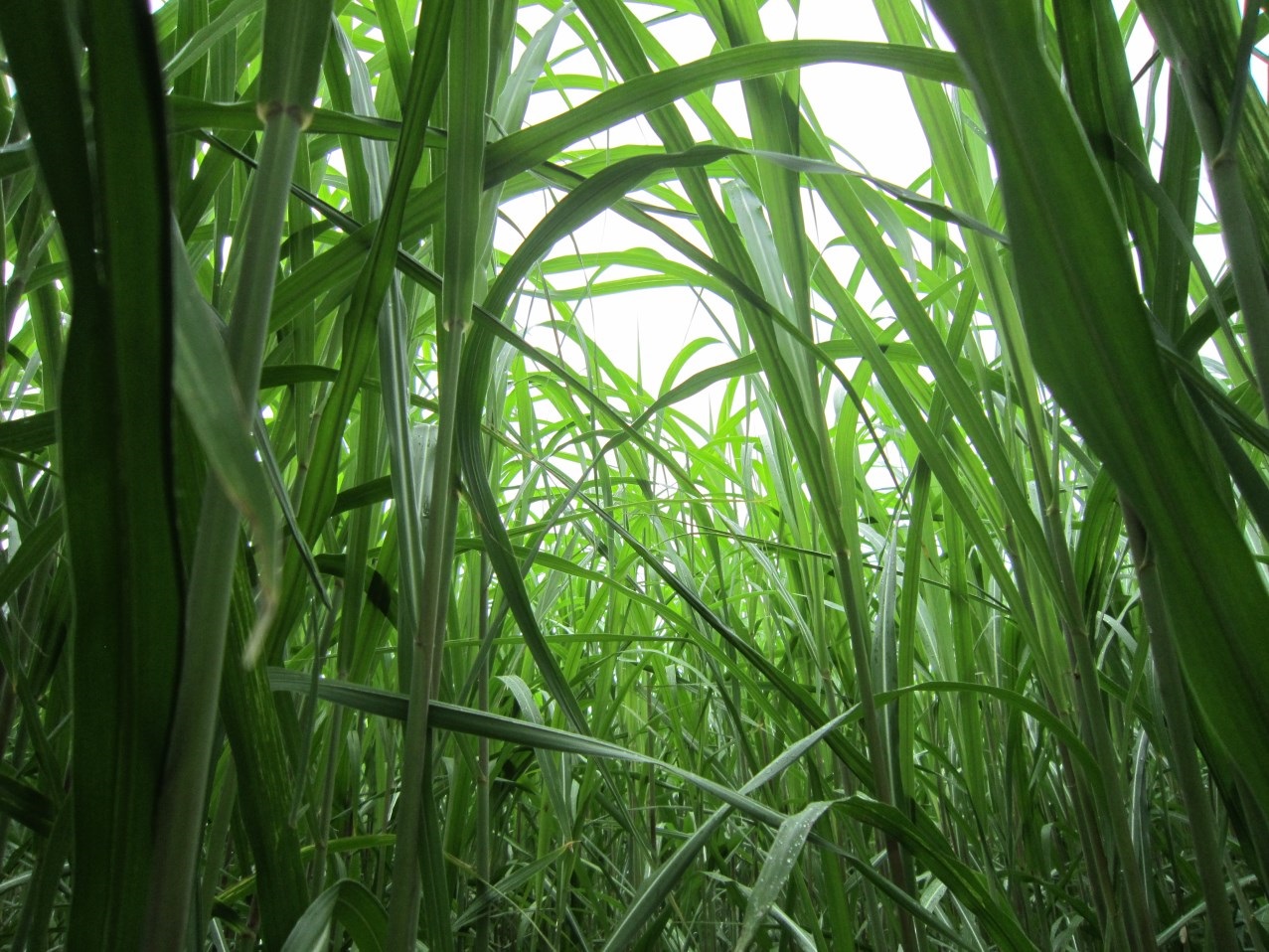
Marie Curie Research: Stelios Stefanidis
Dr Stelios Stefanidis is a Marie Curie Research Fellow at EBRI: Energy and Bioproducts Research Institue (formally known as the European Bioenergy Research Institute) within Aston University, UK.
Carrying out interdisciplinary research in applied sciences often requires specialized equipment, skills and knowledge. Transnational access research programmes provide mobility for researchers and they allow them to access resources not available locally. By taking advantage of such programmes, researchers can visit organizations in other countries to use equipment, gather knowledge and collaborate with researchers working in similar areas.
Case Study: Damijan Cerinski
My BRISK2 transnational access project, ‘The production of syngas with up-draft gasification and enrichment in a membrane reactor’ took me from Croa-tia to Italy’s ENEA Trisaia Research Centre under Dr Francesco Zimbardi.
The objective was to gather data for updraft gasification (PRAGA rig) of almond and hazelnut shells using the air with steam as gasifying agent and analysing the produced syngas composition (H2, CO, CO, CnHm and tars) along the height of the gasifier. Furthermore, the syngas was upgraded in the Pd/Ag membrane reactor (MERES rig) and also an ultra-pure hydrogen was obtained.
Case Study: Alba Martinez I Quer
Alba Martinez I Quer is from Aalborg University in Copenhagen. Her successful BRISK2 proposal took her to SINTEF in Norway from March-May 2019.
I went to visit SINTEF in Trondheim, Norway, as part of the BRISK2 transnational access programme. My main aim was to use equipment that my home university does not have – a high-throughput sequencing platform.
Work Package 5 Update
by Stefan Retschitzegger from BEST (formally known as Bioenergy2020+) at Graz University of Technology in Styria, Austria.
BRISK2 at EUBCE 2019
BRISK2 attended the 27th European Biomass Conference and Exhibition in Lisbon, Portugal this May (EUBCE 2019). EBRI’s Daniel Nowakowski gave a presentation about BRISK2, highlighting activities and possibilities for research exchange. The BRISK2 stand had over a 100 visitors.
PhD student Lukas von Berg from the Institute of Thermal Engineering at TU Graz University, Austria, has won a EUBCE 2019 Student achievement award following a transnational access visit from fellow researchers Cevdet Dogan and Ebubekir Aydin from Turkey to TU Graz.
Read more and see our gallery of photos.
Few Words from Andrew Martin, Project Co-ordinator
BRISK2 is a Research Infrastructures pro-ject supported by H2020, and conducts ac-tivities in three main areas:
- Joint Research, where the objective is the consortium to advance experimental know-how in the biofuels area, including developing innovative measurement techniques;
- Networking, where the consortium reaches out to the European and in-ternational biofuels community for spreading the latest research results and best practices;
- Transnational Access, which opens up a multitude of outstanding rigs free of charge for conducting experi-mental campaigns.
What’s special about this type of project is that participation is allowed, and indeed most welcome, from organizations outside the core consortium of 15 partners. So, if you are interested in biofuels research, then by all means, explore what we can do for you!
Since launching the project in 2017, access has been granted to more than 100 re-searchers from 30 countries.
A special thanks to members of the Users Selection Panel for their expertise in evaluating proposals for Transnational Access. It would not be possible to achieve such high quality without your dedication.
Best Regards,
Andrew Martin

Case Study: Ivan Brokarev
During my BRISK2 research visit in January to March 2018, I worked at GasQ test rig (KTH1) at the Department of Energy Technology (HPT Division) of KTH Royal Institute of Technology in Sweden.
The purpose of my work was to collect experimental data for developing of the new method of composition analyses of bio gas.
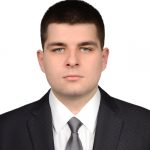
Case Study: Kaouther Zaafouri
My research internship, in the context of a Transnational Access visit through BRISK2, was achieved during April 2018 at ENEA, the Italian National Agency for New Technologies, Energy and Sustainable Economic Development in Trisaia, Italy. Applying to BRISK2 was very easy and simple with the collaboration of Dr. Francesco Zimbardi from the Bioenergy, Biorefinery and Green Chemistry Division at ENEA.
Bioenergy News: ABC-Salt
August 2018
A new venture in biofuels research is underway, focusing on advanced biomass catalytic conversion to middle distillates in molten salts, in a H2020 project otherwise known as ABC-Salt.
ABC-Salt launched in April 2018 funded by Horizon 2020’s Research and Innovation Programme. It
aims to have a positive effect upon the biomass, biofuel and transport industries by developing new technologies that will reduce dependence on unsustainable fossil fuels. Read more.
BRISK2 at EUBCE
August 2018
BRISK2 sponsored the 26th European Biomass Conference and Exhibition from 14 -18 May 2018 in Copenhagen, Denmark.
BRISK2 partners also attended EUBCE 2018 to deliver presentations and posters, with many stopping by the stand to say hello.
Click the Image to see the BRISK2 Gallery of our visit to EUBCE
Case Study: Daya Pandey
August 2018
I am a postdoctoral research fellow at the Institute of Energy Futures at Brunel University, London.
My research focuses on exploitation of the fundamental thermodynamic principles of waste heat recovery, with an emphasis on the thermochemical conversion processes (combustion, gasification and pyrolysis) of animal feedstock and energy integration in order to explore further their potential for application to combined heat and power technologies. This time we are taking an indepth look at the WOB Gasifier in the research facility of our partners TNO.
RIG Focus: TNO’s WOB Gasifier
August 2018
You can explore the FULL RIG LIST at any time, you can also look at what facilities are available at a SPECIFIC LOCATION.
Pictures do speak louder than words, so every now and again we will take a look at a specific piece of equipment. This time we are taking an indepth look at the WOB Gasifier in the research facility of our partners TNO.
Case Study: Diana Oliviera
August 2018
Dr Diana Oliviera from University College Cork was one of the first researchers to complete a BRISK2 transnational access visit. Her successful proposal took her to LNEG in January 2018 to apply Capillary Electrophoresis (CE) to dairy waste protein profiles.
Transnational Access Update
June 2018
BRISK2 has completed two calls for applications for transnational access (TA).
Sixty applications for TA have now been approved and visits from biofuels researchers to BRISK2 research installations are taking place across Europe. Please take a look at our CASE STUDIES page to read more about individual cases.
Please click on the image to read more about the transnational access update and the next series of calls
Joint Research Activites Update
June 2018
Alongside the primary activity of Transnational Access, BRISK2 partners are collaborating on Joint Research Activities. These will yield an improvement in process flexibility and reliability, developing new approaches to biofuels production. Assimilated data and knowledge will provide input for simulation tools and will be used in a broad spectrum of analyses.
BRISK2 partners met again to discuss these activities in June 2018 at the Executive Committee (ExCo) and General Assembly meetings, which were organised in advance of the Summer School at CERTH, Thessaloniki Greece.
Find out more about what was discussed and see the full team.
BRISK2 Summer School a Success
It has been a busy first year for BRISK2, with two calls for transnational access completed and the project’s first successful summer school at CERTH in Greece. Read more about our Summer School held at CERTH in Greece.
UK Bioenergy Mapped
Bioenergy is the largest contributor to global renewable energy supply but needs to triple its contribution by 2050 to support sector decarbonisation and safeguard future generations.
Indirect Land Use Change – Investigated
BRISK2 partners CENER have joined forces with Netherlands Environmental Agency (PBL), Wageningen Economic Research and Wageningen Environmental Research to complete a study for the European Commission. It provides a systematic analysis of the latest available scientific research and evidence on indirect land use change (ILUC) and greenhouse gas (GHG) emissions associated with biofuels and bio liquids production.
Shaping Biorefinery Futures – Request for Input
September 2017
IEA Bioenergy Task 42 facilitates the commercialisation and market deployment of environmentally sound, socially acceptable and cost-competitive biorefinery systems and technologies, advising policy and industrial decision makers.
Project Meeting at KIT
September 2017
From 4th—5th September 2017, BRISK2 partners met at the Karlsruhe Institute of Technology in Germany for productive talks on Joint Research Activities and to make final preparations for the launch of Transnational Access. BRISK2 partners also enjoyed a comprehensive tour of KIT’s extensive biomass conversion facilities and gasification plant.
Click this link to see the pictures of KIT’s brilliant facility
How to Apply for Transnational Access
September 2017
Application Deadline is fast approaching. Click the button to find out if you are eligible to apply and how to submit a successsful application.

Joint Research
September 2017
As well as offering Transnational Access visits to any one of our 18 partners located all around Europe. Eight of our partners are also conducting’round robbin’ research. Whereby samples are shared between the various venues to undergo different types of testing.
Read more about how each Work Package will contribute to collaborative research.

Bioenergy News: ABC-Salt
August 2018
A new venture in biofuels research is underway, focusing on advanced biomass catalytic conversion to middle distillates in molten salts, in a H2020 project otherwise known as ABC-Salt.
ABC-Salt launched in April 2018 funded by Horizon 2020’s Research and Innovation Programme. It
aims to have a positive effect upon the biomass, biofuel and transport industries by developing new technologies that will reduce dependence on unsustainable fossil fuels. Read more.
Meet the Partners
September 2017
Click on the map to see all of our partners or click on each location in the list for a specific site and learn about its area of expertise
- Aston University
- BEST: Bioenergy and Sustainable Energies
- CENER: National Renewable Energy Centre
- CERTH: Centre for Research & Technology HELLAs
- ENEA
- KIT: Karlsruhe Institute of Technology
- KTH
- LNEG
- Politecnico Di Torino
- SINTEFF
- TNO
- TU Delft: Technische Universiteit Delft
- TU Graz: Graz University of Technology
- VTT
- Wageningen University & Research
First Call for Transnational Access
September 2017
Biofuels researchers are now welcome to apply to BRISK2 via the website at any time whilst the project is active.
Applications will be pooled for assessment by a specially appointed panel (USP) of biofuels experts. Call dates until 2019 are available online and are summarised in the table above. Additional dates beyond 2019 will be announced in 2018. The selection panel will meet in December 2017 to assess the first batch of applications and offer initial opportunities to access equipment and expertise with BRISK2. Read more on this article.
Transnational Access Explained
June 2017
BRISK2 officially launched on 26 June 2017 with a 2 day kick-off meeting in Stockholm organised by Project Co-ordinator, KTH.
Representatives from all fifteen of BRISK2’s brand new network of biofuels partners, representing research organisations from eleven European countries, met to discuss the Transnational Access and Joint Research Activities that will underpin BRISK2 until project completion in 2022.
BRISK2 follows in the footsteps of BRISK, which ran from 2011—2015 and offered Transnational Access to more than 200 researchers. Read more about our plans for Transnational Access in BRISK2
Project Launch
June 2017

Welcome to the new Biofuels Research Infrastructure for Sharing Knowledge, funded by Horizon 2020.
BRISK2 provides opportunities for biofuels researchers to access unique equipment and expertise across Europe. The most exciting part of BRISK2 is the ability to offer Transnational Access to a broader range of biofuels researchers from both inside and outside Europe, making this project truly international.
There are also new Joint Research Activities, with collaborations between project partners to investigate integrated multi-scale characterisation of new feedstocks, innovate biorefining approaches and develop system simulation tools.
As Project Coordinator at KTH, it is a pleasure to be part of BRISK2. I look forward to working with the consortium and welcoming researchers for Transnational Access.
Get Free BRISK2 News by Email
Email brisk2@aston.ac.uk with ‘Newsletter Subscription’ in the subject line to receive the next BRISK2 newsletter direct to your inbox!
Biofuels Research Infrastructure

from the European Union’s Horizon
2020’s research and innovation
programme under grant agreement
number 731101.


